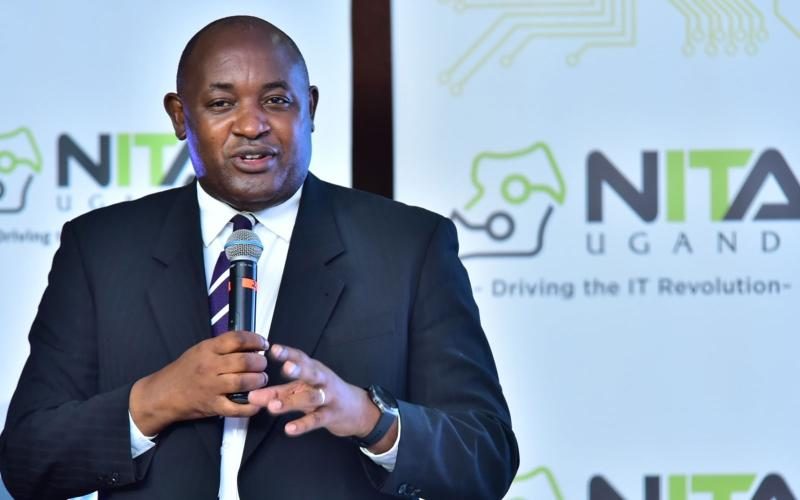By Mark Kawalya
Chris Baryomunsi, the Minister for ICT and National Guidance, has announced a 50% reduction in internet prices. Effective August 1st, 2023, the price of internet services will see a substantial drop from $70 to $35 per Mbps per month. This development was revealed at a press conference held alongside the National Information Technology Authority (NITA Uganda) at the Media Center.
Baryomunsi hopes a similar trend will be adopted by Private Internet Service Providers which will ultimately benefit more Ugandans. “The aim is to provide Ugandans with more economically feasible and easily accessible internet services, that will foster innovation, expansion, and overall development.” Baryomunsi said.
Dr. Hatwib Mugasa, the Executive Director of NITA, was optimistic about the benefits the price reduction would bring. These include an acceleration in digitization, a wider adoption of e-services, and a boost in internet use across the country. “We anticipate that the ripple effect of the Government price cut is expected to influence the average market cost and subsequently lower end user tariffs for businesses and citizens,” Dr. Mugasa said.
Acknowledging NITA’s swift execution of the first phase of the National Data Transmission Backbone Infrastructure project (NBI), Minister Baryomunsi praised its role as the primary conduit for government data, internet, and voice services. The integration of NBI as a secure, high-speed network within the government’s communication infrastructure has not only resulted in reduced communication expenses but has also extended the reach of broadband networks to previously underserved regions.
With a specific focus on government offices connected to the NBI, Minister Baryomunsi highlighted the substantial impact of this price reduction This strategic move is anticipated to yield substantial savings within the government’s communication budget, boost the adoption of E-Government Services, and significantly deepen digitization efforts.
The cost of accessing the internet in Uganda has undergone an evolution, moving from an approximate $1,200 per Mbps to $600 in 2014, and a further reduction to $300 in 2016. These price adjustments have resulted from government MDAs and public offices connecting to the National Backbone Infrastructure, which has extended across all regions of the nation, spanning around 4,300 km and encompassing some 4,360 government offices.
A 2022 research study conducted by Surfshark, a cybersecurity firm based in the Netherlands, ranked Uganda 116th out of 117 surveyed countries in terms of internet affordability. This ranking underscores the pressing need for internet services to become more budget-friendly, in line with global standards.








